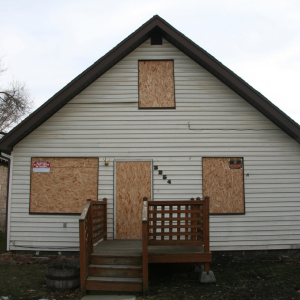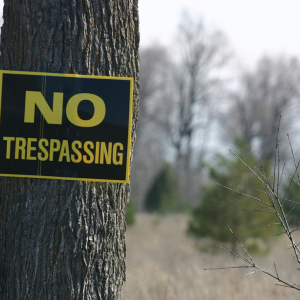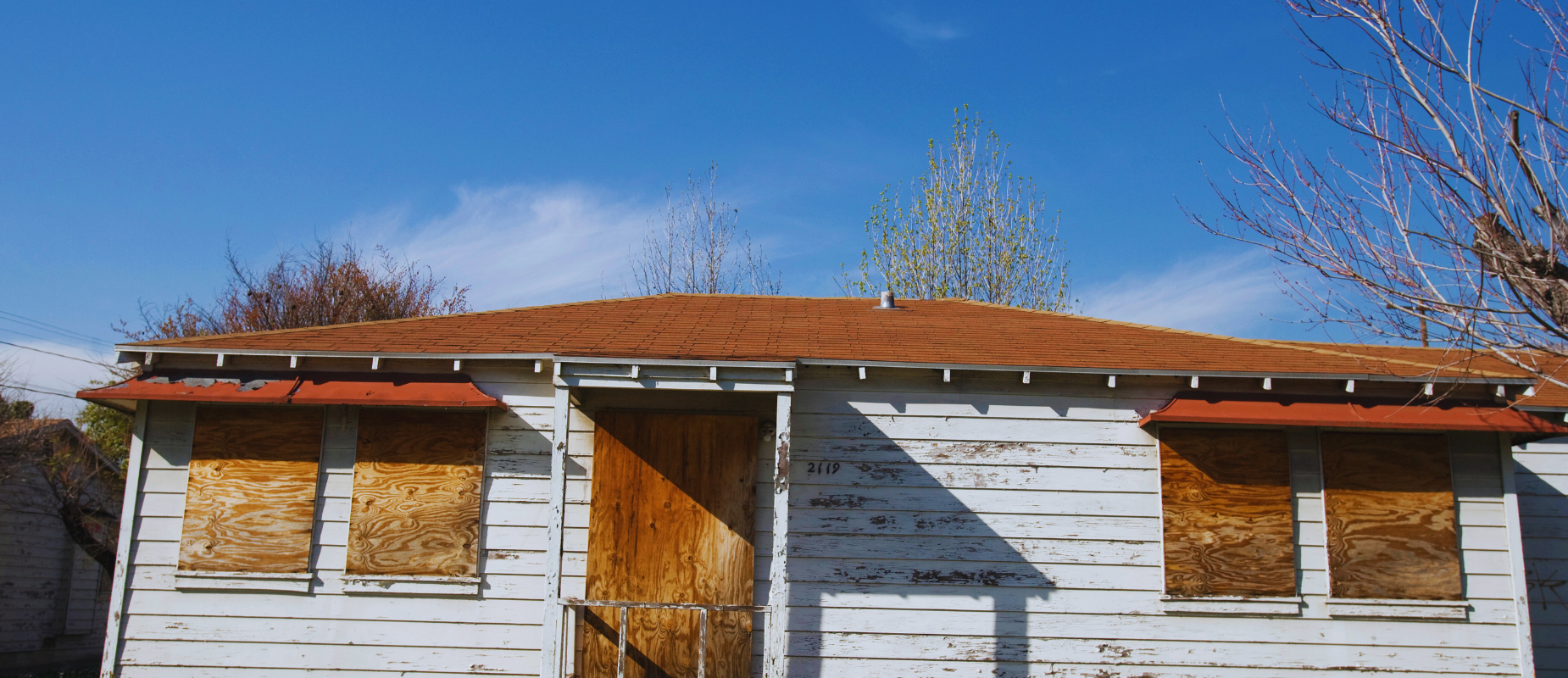Legal Considerations for Moving Into an Abandoned House in Texas
What Are the Legal Implications?
Moving into an abandoned house without permission can lead to serious legal consequences in Texas. The state’s strict trespassing laws and entering a property without the owner’s consent is illegal. If you try to occupy such properties without following legal procedures, you might face charges of trespassing or squatting. It’s important to understand that property rights in Texas are well-protected, and unauthorized occupation can result in civil and criminal penalties.
Can You Obtain Ownership Through Squatter’s Rights?

Under Texas law, you can gain ownership of an abandoned property through what is known as squatters’ rights. This is done via a legal principle called adverse possession. To claim property ownership this way, a squatter must meet specific criteria in the Texas squatters’ rights statute. These include living on the property continuously for a certain period, usually ten years, openly and notoriously. Additionally, the squatter must show exclusive possession and maintain the property, showing an intention to own it.
How Does Adverse Possession Work in Texas?
Adverse possession in Texas allows someone to claim ownership if they occupy a property under certain conditions. For a successful claim, the person must possess the property openly, continuously, and exclusively for at least ten years. They also need to pay property taxes and carry out maintenance, making it clear to the public and the original owner that they are acting as the property’s owner. Meeting all adverse possession requirements is crucial before any claim to property ownership can be valid.
What Legal Steps Must Be Taken to Claim a Property?
To legally claim ownership of an abandoned property in Texas, follow these steps:
- Research Property Records: Check public records to ensure the property is truly abandoned and identify the current owner.
- Meet Adverse Possession Conditions: Satisfy Texas adverse possession requirements, like occupying the property non-stop and paying the related taxes for the required period.
- File a Quiet Title Lawsuit: This involves going to court to establish your claim over the property officially. It helps clear any ownership disputes.
- Title Transfer and Registration: Once the court acknowledges your claim, proceed with the title transfer. You might need help from title companies or legal experts to properly register the abandoned property in your name.
Following these steps and adhering to all legal processes, you can safely and legally pursue ownership of abandoned land in Texas.
Legal Disclaimer: This information is for educational and informational purposes only and should not be taken as legal advice. For guidance specific to your situation, consult with a qualified attorney experienced in Texas property law.
Evaluating If a Property Is Abandoned
How Can You Determine If a Property Is Truly Abandoned?
To determine if a property is abandoned, look at a few key things. Check for signs of neglect, like overgrown plants or mail piling up. Next, check local rules about abandoned properties; these details can tell you what counts as abandoned. You can also learn more by looking into how vacant property is managed.
In Texas, unclaimed property procedures are an important resource. They explain how long a property must be neglected before it’s legally abandoned. Understanding these factors will help you decide if a property is truly abandoned.
What Signs Indicate That a Property Might Be Abandoned?

Here are some signs that a property might be abandoned:
- Structural Disrepair: Look for crumbling walls and broken windows.
- Neglected Yard: Overgrown grass and weeds are clear signs.
- Piled-Up Mail: Uncollected mail or notices on the door signal abandonment.
- Utilities Disconnected: No electricity or water could indicate the property is not in use.
When checking out properties in Texas, be aware of home invasion and urban exploration laws. The state’s housing laws require properties to be kept up to certain standards, and knowing Texas property maintenance requirements helps in assessing these clues.
Who Owns an Abandoned Property?
Finding out who owns an abandoned property can be tricky. In Texas, property ownership laws say you need to examine title deeds and existing claims. Title disputes can happen when multiple people claim ownership.
People wanting to reclaim unoccupied homes should follow the legal process for occupying an abandoned house. This could involve adverse possession or other legal methods to prove ownership. Understanding these laws is crucial to figuring out ownership of abandoned properties.
What Legal Documentation Is Necessary?
Getting legal documents is important when dealing with abandoned properties. An adverse possession claim needs proper paperwork to prove your rights to the property. You’ll need to know how to get title deeds for abandoned homes.
Registering abandoned property under the Texas property code is a must to make legal claims. Getting legal advice can help you understand the steps and ensure you follow the law correctly.
If you’re considering opportunities with abandoned properties, Southern Hills Home Buyers can provide guidance and support in these complex situations.
Risks and Challenges of Occupying Abandoned Properties
Occupying abandoned properties might seem appealing, especially if they appear neglected. However, it’s important to know the risks and challenges involved. These include legal issues, safety concerns, and more, particularly in Texas, where real estate laws are strict.
What Are the Potential Risks Involved?

When thinking about occupying an abandoned house, be aware of these risks:
- Trespassing Laws in Texas: Entering an abandoned property without permission is illegal and considered trespassing, which could lead to criminal charges.
- Illegal Occupancy Consequences: Squatting or occupying these properties without the owner’s consent can result in fines, legal problems, or even jail time.
- Ownership Challenges: If the owner returns or sells the property, you could face eviction and lose any possessions inside the home.
Could You Face Eviction or Legal Action?
Yes, living in an abandoned property can lead to eviction and legal problems:
- Texas Squatter Eviction Process: Texas law allows property owners to start eviction processes against squatters. This involves serving a notice and may require law enforcement.
- Squatters Rights in Texas: While squatters’ rights, known as adverse possession claims, exist, they are complicated and require meeting specific conditions over a long period.
- Landlord and Property Owner Rights: Property owners can remove unauthorized occupants by following legal procedures.
How Can You Mitigate These Risks?
To reduce the risks of occupying abandoned properties, consider these steps:
- Legal Advice: Get professional legal advice to understand your rights and obligations under Texas law.
- Property Maintenance Requirements Texas: To avoid further legal issues, make sure any property you occupy follows local maintenance laws.
- Adverse Possession Claim Process: If you want to claim ownership through adverse possession, research this process thoroughly and ensure that it meets all legal requirements in Texas.
Are There Safety Concerns with Abandoned Buildings?
Yes, abandoned buildings often have safety concerns:
- Structural Hazards: Many abandoned buildings are neglected, leading to unsafe structural conditions.
- Urban Exploration Laws Texas: Urban exploration can cause legal issues. Know the local laws and restrictions.
- General Safety: Without proper maintenance, these properties can have risks like mold, pests, or hazardous materials.
Understanding these risks and challenges is essential before considering occupying an abandoned property. Always pursue legal avenues and consult professionals to protect your safety and interests.
What Procedures Should Be Followed?
In Texas, if you want to occupy an abandoned house, you must follow the rules outlined in the Texas property code. The process to legally claim such a property is called adverse possession. This requires you to meet certain criteria, like living openly in the property for around ten years. Here’s how to begin your adverse possession claim:
- Clearly show that you intend to claim the property.
- Live on the land openly without hiding.
- Take care of the property while following local rules.
- Consult with legal experts who know about property rights in Texas to stay within the law.
Following these steps correctly is necessary for those who want to own abandoned land legally.
Are There Any Financial Costs Involved?

Before taking ownership through adverse possession in Texas, knowing the financial aspects is important. Possible costs may include:
- Property Tax Liens: Abandoned homes often have unpaid taxes. Paying off these taxes might be necessary to claim the property.
- Legal Fees: In Texas, you’ll need lawyers to guide you through adverse possession, which means legal expenses.
- Squatting Legal Repercussions: If you’re occupying a place without permission, you risk fines or eviction if you can’t prove a legal right to be there.
Following property abandonment rules is important to avoid unexpected liabilities.
Can Renovations Be Made Before Ownership is Secured?

Before you start renovations, you must understand Texas’s legal requirements related to abandoned properties. This includes:
- Abandoned Home Renovation Permits: You’ll likely need permits for renovation work. Check with local authorities for approvals.
- Property Maintenance Requirements in Texas: Ensure maintenance follows state laws to avoid legal problems.
- Legal Occupancy Considerations: Obtain legal permission before moving in to prevent disputes.
Getting advice from experts on Texas housing laws and learning about squatters’ rights statute in Texas can guide your actions and help avoid issues.
Could There Be Complications in Title Transfer?
Transferring a title for an abandoned home can be complicated due to:
- Title Disputes in Texas: Existing claims or disputes can arise during the process.
- Texas Real Estate Law Compliance: Following state laws carefully helps smooth transactions.
- Obtaining Title Deeds: You’ll need clear documentation and must meet adverse possession requirements.
It’s wise to work with real estate professionals when dealing with title transfers for abandoned homes. This ensures your actions comply with adverse possession requirements, helps avoid problems, and secures legitimate ownership.
If you have further questions, consider contacting Southern Hills Home Buyers or consult a real estate attorney experienced in Texas property law for personalized advice.
Community and Environmental Impact
How Does Occupying Abandoned Properties Affect Communities?
When people occupy abandoned properties, it can greatly impact communities. In Texas, property rights play a key role, and municipal regulations are in place to protect the community’s interests. If these properties are neglected, they can become environmental hazards and pose safety risks. However, these properties can be used for neighborhood revitalization with good management. To prevent illegal occupancy, Texas has urban exploration laws that ensure revitalization efforts benefit all community members.
What Environmental Hazards Might Exist?

Abandoned properties often present environmental hazards. Without upkeep, they may attract pests and suffer structural damage. In Texas, property maintenance requirements reduce these risks. Illegal occupancy can worsen these issues, raising safety concerns. Knowing the regulations for abandoned buildings helps prevent accidents and ensures public safety. Additionally, historical property laws in Texas must be followed to respect cultural heritage during renovations or occupations.
How Can Revitalizing These Properties Benefit the Neighborhood?
Revitalizing abandoned properties can greatly benefit neighborhoods. It improves the area’s look and creates property ownership opportunities. Distressed property acquisition allows for transforming neglected spaces into valuable assets. When communities get involved, these efforts lead to economic growth and better living conditions. Municipal regulations ensure that new developments follow legal standards and positively contribute to the neighborhood.
What Role Do Local Governments Play in Managing These Properties?
Local governments are crucial in managing abandoned properties. Municipal regulations guide the handling and potential redevelopment of these sites. They can impose property tax liens or manage unclaimed property procedures to ensure compliance and accountability. In Texas, occupying an abandoned house involves several legal steps where community involvement is encouraged. These measures help foster community growth and sustainability, supporting broader urban development goals.
Are you wondering how to sell a house in Texas? We’re here to help! Whether you’re in Dallas, Houston, Austin, Fort Worth, El Paso, or nearby areas, the process can feel overwhelming. But don’t worry, we’ve got you covered.
At Southern Hills Home Buyers, we buy houses throughout Texas, making the selling process simple and stress-free for homeowners like you. No matter your situation or the condition of your home, we can provide a solution that works for you.
Read on to learn more about selling your house in Texas. If you need personalized assistance or want to sell your house quickly, don’t hesitate to Contact Us at (214) 225-3042. We’re ready to help you every step of the way!
FAQs:
Can I legally move into an abandoned property in Texas?
Moving into an abandoned property without permission is illegal in Texas. To claim ownership, you must meet specific criteria under adverse possession laws, which often require many years of occupancy. Consulting a real estate lawyer for guidance is recommended.
What are my options if I find a vacant house or property in Texas?
If you’re interested in a vacant property, start by researching its legal status. Contact the local county records office to check for tax liens or ownership details. You might consider purchasing it through proper channels or contacting the owner directly.
How does adverse possession work in Texas to claim an abandoned property?
Adverse possession in Texas requires you to openly and continuously possess the property for at least 10 years. You must show clear evidence of your occupancy and use. A legal expert can help navigate this complex process.
What legal repercussions exist for moving into a vacant house without permission?
Occupying a vacant property illegally can lead to eviction, fines, or arrest. It’s important to understand these legal consequences beforehand, and consulting an attorney is advisable.
Are there certain permits required to renovate an abandoned home in Texas?
Yes, you need renovation permits from your local municipality before making changes to an abandoned home. This ensures compliance with structural and safety guidelines. Always verify with local authorities.
What steps should I take to avoid legal issues when dealing with a vacant property in Texas?
First, research the property’s legal status and ownership thoroughly. Hire a real estate lawyer for advice. Ensure that any agreements or transactions are well-documented and comply with Texas law.
Could occupying an abandoned property affect my car insurance or other personal matters?
Living in an abandoned property without legal rights can impact insurance coverage. Policies often require you to reside at a legally obtained address. Informing your insurance provider about any changes is crucial.
What should I know about renters’ rights in Texas if considering living in a vacated property?
Renters in Texas have rights protected by state law, such as safe living conditions and the return of security deposits. However, these protections apply only to those with a legal rental agreement. Unauthorized occupation does not grant these protections. Seek legal advice for clarity.
Key Insights
- Understanding the adverse possession claim process is essential for those interested in owning abandoned properties. This includes distressed property acquisition in Texas. Ensure all paperwork, such as rental agreements and property maintenance requirements, is complete.
- Research the legal repercussions for squatting and how to register abandoned property. Municipal regulations on abandoned properties vary, affecting renters’ rights, eviction procedures, and repossession of vacated properties.
- To handle title disputes in Texas, use resources like a law library or consult a lawyer who specializes in hostile possession. This also involves understanding historical property laws and the implications of a property tax lien on abandoned houses.
- Learn about temporary housing solutions and homesteading rights to navigate abandoned land regulations. Understand the homestead exemption in Texas and the legal requirements for homesteading in Texas.
- Individuals wanting to claim rights to abandoned land should be familiar with unclaimed property procedures and adverse possession laws. The statute of limitations is crucial in this process.
- Renters’ rights in Texas include laws about living without utilities and inheritance rights. These are important when dealing with abandoned home renovation permits or construction projects.
- Obtain permits for historical property renovations and comply with construction and abandonment regulations. Consider security measures, such as maintaining a fence around your property.
- For those interested in distressed property opportunities, understand the regulations for vacant properties and market trends involving real estate and factory conversions.
- An effective strategy includes verifying a property’s status through public records and using platforms like Turbotenant for landlord and tenant guidance. Stay updated on trends with resources like Reddit and reputable articles.
- Legal disclaimer: This information serves educational purposes only and is not legal advice. Consult a legal professional for specific guidance.
Get Cash For Your Texas House Today
We buy houses in Texas without the hassle and red tape. Get your no-obligation cash offer for your home and just be done. Selling in as-is condition has never been easier.


